
Health
27 October, 2024
Teeth. A life story and after, how oral health affects your destiny
At first glance, dentistry may seem like a boring topic, but our teeth actually play a much more important role in our lives than we tend to think. What if I told you that the number 38 is directly related to your teeth? Yes, that's right. Teeth are not only about how we smile, but also about our health, confidence, and even… time. From the first baby teeth to a mature smile, oral care accompanies us at every stage of life. And, as always, I write for everyone without shyness, touching on even the most intimate aspects: how teeth can affect our personal lives. Also, teeth are the only part of the body that can “survive” us even after death. How and why? From hygiene and intimacy to the most unusual facts about teeth, let's get to the bottom of it all.
It starts with baby teeth
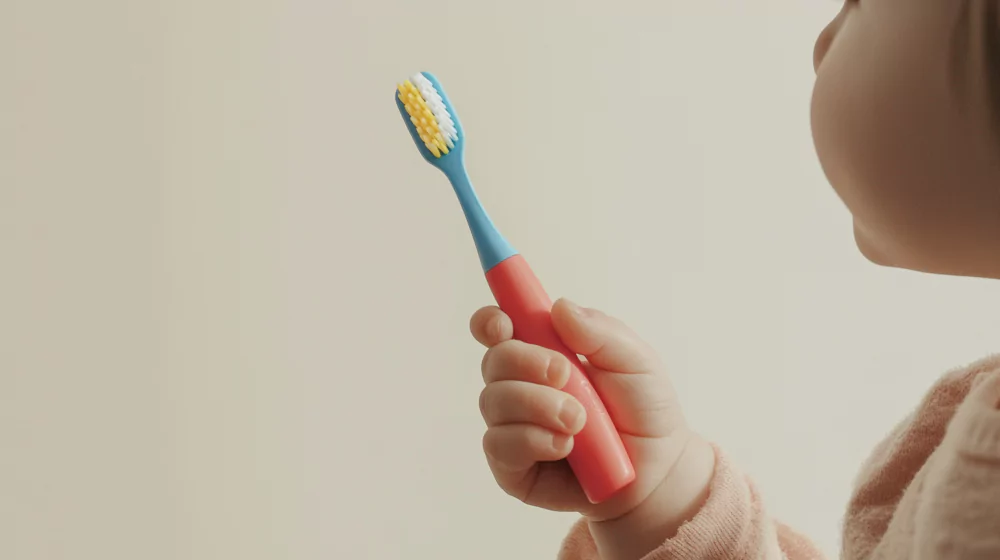
Why take care of baby teeth?
When a baby's first tooth appears in the family, parents and relatives are always excited. At this moment, they buy the baby his first toothbrush, take funny pictures, and celebrate new milestones. But along with the joy comes the first responsibility - taking care of teeth. Many parents may think, “Why bother with baby teeth? They're going to fall out anyway.” This is one of the most common misconceptions we face when it comes to pediatric dentistry.
However, baby teeth are a crucial element of a child's development. They perform many functions, such as:
- Forming a proper bite: Baby teeth give direction for the growth of permanent teeth. If a child's baby teeth fall out prematurely due to tooth decay or other problems, it can interfere with the development of the jaw and create serious dental problems in the future.
- Speech Development: Properly positioned teeth help your child pronounce sounds and words clearly. Dental irregularities can lead to speech defects, which can affect a child's self-esteem and ability to communicate with others.
- Proper chewing: Baby teeth play an important role in chewing food. If they are decayed or underdeveloped, your child will have difficulty chewing, which can lead to nutritional deficiencies.
- Building confidence: Dental problems can cause complexes in children. If a child is in pain or discomfort because of their teeth, it can affect their mood, participation in play, and even their desire to smile.
Thus, caring for baby teeth is an investment in your child's future health and well-being.
How to care for baby's teeth?
Proper care for baby teeth starts from the first day they appear. Although the first tooth usually appears around 6 months of age, some children may start teething earlier or later - this is completely normal. The main thing that is important for parents to remember is to provide timely and proper care.
- Brushing from the first day: As soon as your baby's first tooth appears, it's time to start taking care of its hygiene. To do this, use a soft baby brush with a small amount of toothpaste. Pediatricians recommend toothpaste with minimal fluoride for babies, as the child may accidentally swallow it.
- Turn brushing into a game: Dental care should not be a chore, but a fun ritual that your child will look forward to. Colorful toothbrushes featuring favorite cartoon characters, bright songs and praise can make brushing fun and enjoyable for your child.
- First Dental Visit: It is important to visit the dentist with your child in the first year of life, even if everything seems fine. Early visits to the dentist can detect possible problems early and also help your baby get used to going to the doctor, avoiding fear of dental procedures in the future.
- Avoid sugary drinks and bad habits: Some parents give their babies sugary drinks or let them suck on a bottle of juice before bedtime. This can cause what is known as “bottle tooth decay” - early tooth decay due to sugar exposure. It is also worth avoiding frequent use of pacifiers, which can lead to malocclusion.
Forming good habits from an early age
Young children are real sponges that absorb everything they see around them. That's why it's important for parents to set an example of good oral hygiene. When children see their mom and dad regularly brushing their teeth, rinsing their mouths and taking care of themselves, they begin to copy these actions, which contributes to the formation of healthy habits for life.
Here are some additional recommendations for parents:
- Use encouragement: Every brushing is a reason to praise them. Children love to be praised, so don't skimp on compliments for their efforts.
- Create family traditions: For example, set aside a time for the whole family to brush their teeth together before bedtime. This will create a positive attitude towards oral care.
- Play “dentist” at home: Ask your toddler to “check” your teeth with toy instruments. This will help him get used to the idea of dental checkups and eliminate his fear of the dentist.
Why is early dental care so important?
Proper care of baby teeth lays the foundation for a lifetime of oral health. Not taking care of baby teeth from childhood can lead to cavities, infections, and other problems that will negatively impact permanent teeth. Early tooth decay can affect a child's overall health, causing pain, discomfort, and even lead to eating problems.
In addition, healthy baby teeth are essential for proper speech development. Teeth play an important role in the formation of sounds, and if a child loses teeth prematurely, it can make it difficult for him or her to learn to speak.
Bottom line:
Caring for baby teeth is not just a hygiene procedure, but an important aspect of your child's overall health. Remember that establishing proper habits from an early age helps avoid many problems in the future. Timely care of baby teeth ensures that your child will grow up with strong, healthy teeth and a beautiful smile that will be his or her calling card for life.
Teenagers and teeth - the age of braces

Adolescence is a time of tremendous change, and it not only affects your hormonal and emotional state, but also your dental health. During this period, the body goes through many physical changes that can affect the condition of the oral cavity. Hormonal fluctuations make gums more vulnerable, increasing the risk of inflammation, while teenage busyness and neglected hygiene lead to problems with tooth decay. In addition, many teens face the need to wear braces, adding even more dental care challenges to their lives.
How do hormones affect dental health?
Adolescence is accompanied by rapid hormonal activity that affects the entire body, including the oral cavity. Increased levels of hormones such as estrogen and testosterone make the gums more sensitive and prone to inflammation. During adolescence, problems such as gingivitis, an inflammation of the gums that can cause them to become red, swollen and bleeding, are common.
In addition, hormones can affect saliva production. Reduced saliva production can lead to dry mouth, which increases the risk of tooth decay, as saliva plays an important role in the natural defense of teeth against bacteria.
Teenagers tend to be busy with school, sports, and socializing, which can take their attention away from regular dental care. They may neglect oral hygiene, which adds to the risk of tooth decay and gum problems.
Braces are an essential part of adolescence
For many teens, the period of wearing braces is not only a physical challenge, but also a psychological one. Braces help correct the bite, align the teeth and make the smile beautiful, but they require serious maintenance and can cause discomfort. Teenagers may be self-conscious about their appearance because of braces, which affects their self-esteem and confidence.
However, it is important to realize that the result of wearing braces is worth it. A beautiful and straight smile will not only be an aesthetic advantage, but also a guarantee of proper functioning of the dentoalveolar system. Correcting the bite helps to avoid future problems with teeth and gums, improves chewing and even affects pronunciation.
Tips for caring for your teeth as a teenager
1. Parental support
Teenagers may feel insecure and self-conscious about wearing braces. It is important to support them during this period and explain that braces are a temporary measure that will lead to great results. Remind them that many people wear braces and it is a normal stage in life that will end in a beautiful smile.
- Help them choose convenient oral hygiene products such as special brushes and floss for braces.
- Praise them for their responsibility in caring for their teeth and patience to keep them motivated.
2. Proper care with braces
Braces require more care as food can easily get stuck between the arches and around the braces, increasing the risk of tooth decay. Regular and proper brushing can help you avoid these problems.
- Use special orthodontic brushes for brushing teeth with braces, they will help to better clean hard-to-reach areas.
- Dental floss for braces is an important tool to help keep your teeth clean between your teeth.
- Mouthwashes with antiseptic properties will help reduce bacteria that can cause gum inflammation and tooth decay.
3. Food and braces
While wearing braces, certain foods can pose a risk to the health of your teeth and the braces themselves. Hard or sticky foods can damage the brackets and bracket attachments, causing them to break and requiring additional visits to the orthodontist.
- Avoid sticky and hard foods: caramel, gum, hard nuts and candy can damage your braces. It's best to avoid these foods for a while.
- Cut food into small pieces: even relatively hard foods such as apples or carrots can be safe if you cut them into small pieces and avoid biting with your front teeth.
Emotional support for adolescents
Braces can have an impact on teenagers' self-esteem. They may feel that their appearance has changed and they do not look as attractive. It is important to provide emotional support and let them know that this is a temporary change that will lead to great results in the future.
- Open Talk: Encourage your teenager by explaining that many famous people have worn braces and it has not affected their career or success. Examples of idols or celebrities can help your teen feel more confident.
- Appreciate their patience and effort: Teens who take proper care of their teeth with braces deserve praise for their efforts. Positive comments from parents can boost their confidence.
Long-term benefits of braces
Although teens may shy away from braces, wearing them offers many benefits in the long run. Correcting your bite and aligning your teeth not only improves your appearance, but also prevents potential jaw and dental problems in the future. Aligned teeth are easier to clean, which reduces the risk of tooth decay and gum disease.
In addition, properly aligned teeth can help avoid problems with a misaligned bite, which can cause jaw pain and headaches. Braces can also improve diction and help avoid speech problems.
How can you make wearing braces less stressful?
- Comfortable dental care accessories: Special brushes, flossers, and irrigators help make braces care easier and more effective.
- Positive Examples: Tell your teenager that many celebrities and successful people have worn braces and it has not interfered with their confidence and career success.
- Regular visits to the orthodontist: Professional support and regular follow-up can help avoid problems with braces and ensure proper treatment.
Brief conclusion:
Adolescence is a period of great change, and teeth are no exception. Wearing braces and oral care during this time can be challenging, but it's important to remember that these efforts will lead to great results - a healthy and beautiful smile for life. Parental support, proper care and attention to hygiene will help teens get through this period with minimal difficulty, maintaining dental health and self-confidence.
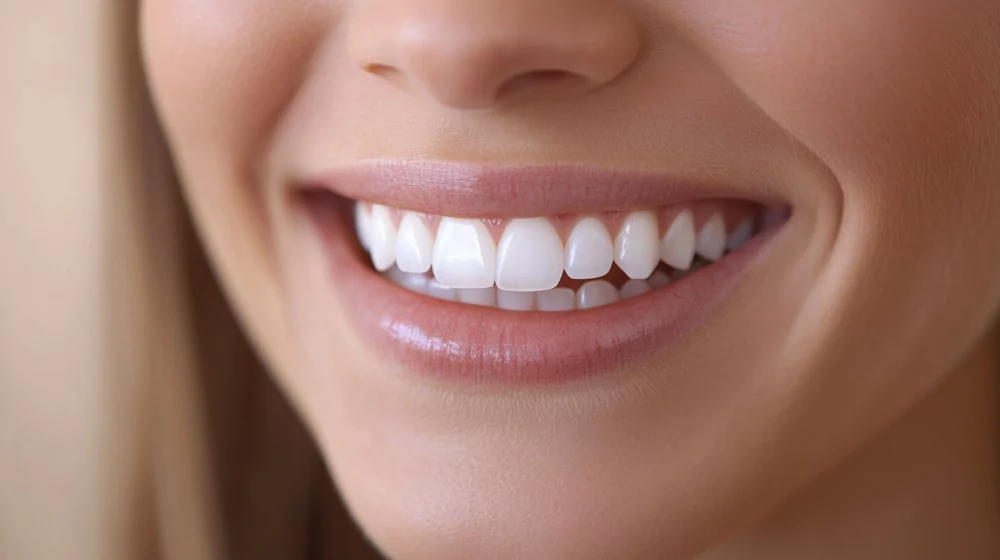
Adulthood is a time to shine
How do teeth affect careers and relationships?
Adulthood is a period when communication with others reaches a new level. We develop our careers, build personal relationships, and actively interact with people in a variety of situations. And this is where a beautiful and healthy smile plays one of the key roles. It does not just decorate the face, it becomes our “pass” to the world of communication. Well-groomed teeth add self-confidence, make a person more attractive and even successful in the eyes of others.
Studies show that people with straight, white teeth are perceived by others as more trustworthy, confident and successful. A smile helps build bridges in communication, open new opportunities and attract attention. But as it turns out, teeth are not just about external beauty. Oral health is closely linked to the overall health of the body. Problems with teeth and gums can have serious consequences for the entire body.
The impact of oral health on the overall health of the body
We often don't think about the fact that our teeth can be an indicator of our overall health. In fact, the oral cavity is a kind of mirror that reflects internal problems. For example, tooth decay or gum infections can not only cause pain and discomfort, but can also lead to more serious consequences.
- Heart disease: Inflammation of the gums (periodontitis) is associated with an increased risk of cardiovascular disease. Bacteria that cause inflammation in the mouth can enter the bloodstream and contribute to blood clots, increasing the risk of strokes and heart attacks.
- Diabetes: People with diabetes are more susceptible to gum disease because their immune system is weakened. In turn, poor oral health can make it difficult to control blood sugar levels.
- Respiratory problems: Infected teeth or inflamed gums can be a source of bacteria that, once in the lungs, can cause respiratory problems such as pneumonia.
So, taking care of your teeth is not only about your appearance, but also about your overall health. Regular brushing, flossing and rinsing, and regular visits to the dentist can help prevent serious diseases and keep your entire body healthy.
How dental care affects personal relationships
When it comes to personal relationships, we always strive to look and feel our best. But sometimes the importance of dental care in the context of relationships is forgotten. While well-groomed teeth and fresh breath are some of the key factors that can affect confidence in intimate relationships.
Imagine the situation: you have a date, a romantic dinner or a night out together. You're confident in your appearance, but if you don't pay attention to your oral hygiene, it can be a hindrance to intimacy. Bad breath, cavities or inflamed gums can lead to discomfort and become a barrier to intimacy. After all, any relationship is built on trust, and self-confidence is an important aspect of that trust.
Well-groomed teeth and fresh breath make you feel more confident and relaxed around your partner. In turn, this promotes harmony in the relationship.
Dental care tips for maintaining harmony in relationships
- Brushing your teeth before a date
This is a simple but important step that will add to your confidence and ensure you have fresh breath. Even if you are just going out to dinner with your partner, brushing your teeth before you meet will make you feel fresh and confident that your breath will not be a cause of embarrassment. - Using mouthwash
Mouthwash is a great way to get rid of odor-causing bacteria and prolong the feeling of freshness. In addition, many mouthwashes help prevent gum inflammation and tooth decay, making them an important addition to your daily hygiene routine. - Regular visits to the dentist
Prevention is always better than cure. Regular checkups with your dentist can help detect problems early, before they cause discomfort or bad breath. Not only will this ensure dental health, but it will also boost your confidence in relationships. - Don't forget to floss
Flossing is a mandatory part of dental care. It helps to remove food debris and plaque between your teeth where a regular toothbrush fails. Clean teeth and healthy gums are the key to your good mood and self-confidence.
How does smiling affect your career?
A smile is one of the most powerful tools we use on a daily basis. In a professional environment, your smile can play a key role in successful communication and career achievements. People with well-groomed teeth appear more open and confident, which has a positive impact on their career prospects.
- Confidence in job interviews: When you are confident in your smile, you feel more confident when dealing with employers. This helps create a positive impression and demonstrates that you care about yourself and your health.
- Social Connections : In any job, connections with coworkers, clients and associates are important. A well-groomed smile helps establish trust, build rapport and build business relationships.
- Public Speaking: If your work involves public speaking or presentations, a smile is your greatest ally. It makes you more attractive to the audience and helps you connect emotionally with people.
Teeth and confidence
It's important to remember that well-groomed teeth not only improve your health and appearance, but they also affect your self-esteem. When you are confident in your smile, you feel more confident in any situation - whether it's a date, a business meeting, or a casual conversation with a stranger. It is an integral part of our personality that helps us shine and succeed in life.
Conclusion:
Adulthood is a period when we strive for success in career, relationships and social interactions. Dental health plays an important role in all these aspects. Taking care of our mouth not only helps prevent disease, but also makes us more confident, attractive and successful.
Don't forget regular hygiene, visits to the dentist, and proper dental care. Your smile is your asset that works for you in every situation. Take care of it, and it will delight you and others for years to come!
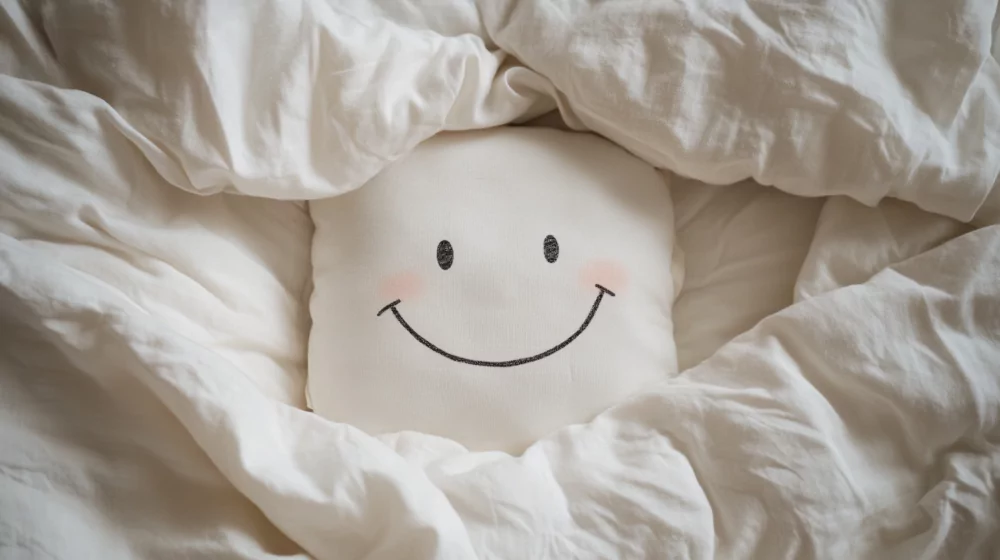
Dentistry and intimacy
Oral health is not only about health and appearance, but also about inner well-being, self-confidence and even personal relationships. Intimate life is another area where dental health plays an important role, although we don't always think about it. Fresh breath and well-groomed teeth can dramatically change your well-being and improve contact with your partner, because trust and confidence are the foundation of intimacy. Smiling is known to be one of the most powerful tools for establishing emotional and physical contact.
How do healthy teeth affect intimate relationships?
We often underestimate how important teeth and fresh breath are to successful intimate relationships. However, according to psychologists and dentists, they can play a key role in how confident we feel in intimate moments. Well-groomed teeth and fresh breath provide us with an inner confidence that translates to our relationship with our partner.
- Self-confidence: When your teeth are clean and your breath is fresh, you feel more confident in intimate moments. This feeling carries over to your partner as well - people who are confident tend to seem more attractive and open to socializing.
- Comfort in intimacy: Any intimacy involves physical and emotional closeness. Bad breath or dental problems can create a barrier, causing embarrassment, discomfort, and even withdrawal. Being confident in your hygiene helps you avoid this barrier and enjoy the moment to the fullest.
- Smile as a seduction tool: Smile is one of the strongest non-verbal cues we use to attract a partner's attention. A sincere and confident smile can help relieve tension, establish an emotional connection and even seduce. It's not for nothing that they say a beautiful smile can “disarm” anyone.
- Partner Support: It is also important to remember that taking care of your health and appearance is a sign of respect for your partner. When we maintain good oral hygiene, we show that we care about how we look and how we are perceived by our loved one. This helps to build trust and increase understanding in the relationship.
How does dental health relate to sex drive?
While it may seem like teeth and sex life are far apart, research shows that this is not the case. Gum inflammation and oral infections can lead to systemic diseases, which in turn can decrease sex drive. For example, chronic infections and inflammation in the body can cause fatigue, apathy, and even depression, which directly affects intimate relationships.
Moreover, people who suffer from gum disease or have dental problems often experience discomfort, which can cause a decrease in self-esteem and self-confidence. This in turn affects intimate relationships, creating emotional barriers between partners.
The importance of fresh breath in intimate relationships
One of the main reasons why oral health affects intimate relationships is bad breath. Halitosis (bad breath) is a problem that can arise either from poor hygiene or dental disease (cavities, inflammation of the gums). This factor can be a serious obstacle in a relationship, especially in the early stages when both partners are trying to make the best impression on each other.
For those who face the problem of bad breath, it is important to find the cause and treat it. In some cases, the bad odor may not even be caused by your teeth, but by problems with your stomach or respiratory system. Either way, regular use of mouthwashes, tongue brushing and flossing can help prevent odor.
Tips for maintaining oral hygiene before intimate moments
When it comes to your love life, small hygiene rituals can be a great way to show you care about yourself and your partner. Taking care of your mouth is one such ritual that you can incorporate in preparation for intimate moments. Here are some simple but effective tips:
- Brushing and flossing
Simply brushing your teeth before you meet your partner helps get rid of plaque and food debris, giving you fresh breath and confidence. Flossing, on the other hand, helps remove anything that may have gotten stuck between your teeth and become a source of bad odor. - Using mouthwash
This is a great way to prolong the freshness of your breath. The rinse kills the bacteria that can cause bad odor and leaves you feeling clean and fresh. - Tongue cleaning
Many people forget the importance of tongue brushing, but it is one of the key elements of oral hygiene. Bacteria that accumulates on the tongue can be the cause of bad odor, so be sure to use a special scraper or toothbrush for this procedure. - Prevent gum and tooth problems
Regular visits to the dentist can help prevent inflammation, cavities, and other oral diseases that can not only cause discomfort, but also affect your personal life.
Smile as an element of sex appeal
A smile is a powerful seduction tool that helps to build emotional rapport with your partner. People with well-groomed teeth and a beautiful smile seem more open and attractive. A smile is not just a show of goodwill, it carries energy and confidence, which is immediately transmitted to others.
When you take care of your teeth and smile, it reflects on your inner state. Well-maintained teeth allow you to smile more, be more open and free in relationships, which has a positive effect on your partner's perception of you.
Dental care as part of taking care of yourself
Taking care of yourself starts with simple but important habits like taking care of your teeth. It's not just a hygiene routine, it's a part of your self-perception that affects all aspects of life, including personal and intimate relationships. When you feel that you look good and are confident in your appearance, it reflects on your behavior and attitude towards your partner.
Incorporating oral hygiene into your daily routine not only helps you maintain your health, but also your self-esteem. You show yourself and your partner that you care about yourself and your appearance, which creates a sense of respect and consideration for both yourself and your partner.
Conclusion:
Dental care is not only a matter of health, but also a matter of self-confidence and building harmonious intimate relationships. Healthy teeth and fresh breath can boost your confidence, increase your attractiveness and improve the quality of intimacy with your partner. Remember that a smile is one of the most powerful seduction tools you carry with you at all times. Take care of your teeth and your confidence will shine in any situation!
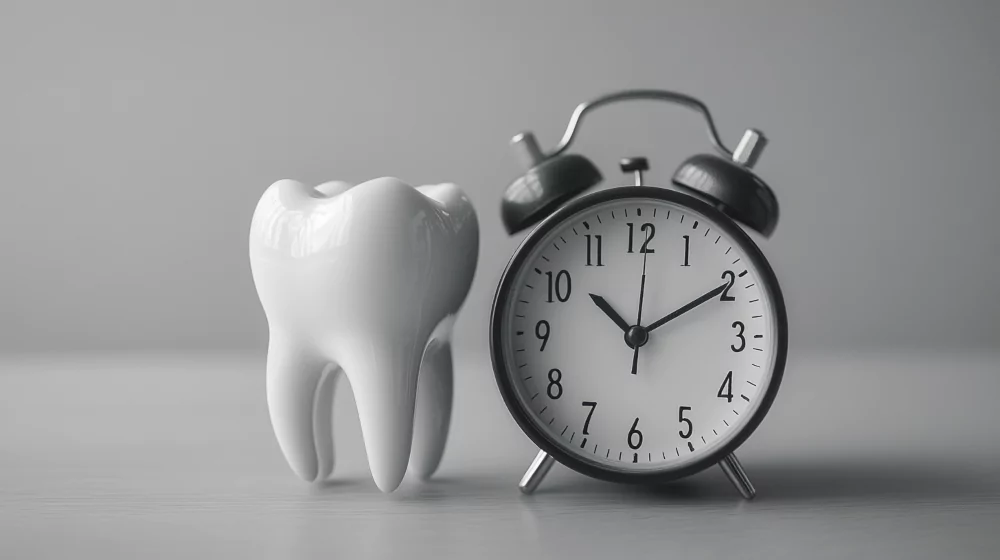
Teeth in adulthood
Age is not an excuse to forget about dental health. On the contrary, the older we get, the more our body needs care and attention. As the years pass, oral health becomes especially important, as teeth and gums are subjected to additional stresses and the body no longer recovers as quickly as it did when we were younger. Dental health is not only a matter of appearance, but also of comfort, self-confidence and general well-being.
How do you keep your teeth healthy for years to come?
In adulthood, many people face problems such as tooth loss, inflamed gums, and weakened enamel. However, modern dentistry offers many solutions that help keep your smile beautiful and your teeth healthy even at an advanced age. The main thing is prevention and regular oral care.
Here are some basic rules to help keep your teeth healthy for as long as possible:
- Regular brushing
Even if you have dentures or implants, oral care should remain regular. Brushing twice a day and flossing remain important aspects of maintaining healthy teeth and gums. - Dietary control
A healthy diet in adulthood plays a key role in maintaining healthy teeth. It is important to avoid excessive consumption of sweets and acidic foods that can erode enamel. Add more foods to your diet that are rich in calcium and vitamins D and C, which help strengthen teeth and gums. - Regular visits to the dentist
Age-related changes may not be immediately apparent, so regular checkups with your dentist can help detect problems early and prevent them from developing. Remember to visit your dentist at least twice a year. - Gum care
One of the most common problems in adulthood is gum disease, which can lead to tooth loss. Using special toothpastes and rinses, as well as regular checkups with your dentist, can help prevent gum inflammation and keep your gums healthy.
Tooth loss in adulthood: how can confidence be restored?
Tooth loss is a common problem among people over the age of 50, and it can be a real blow to self-esteem and comfort. However, thanks to modern technology in dentistry, tooth loss is no longer a sentence. Dentures and implants offer excellent solutions for restoring the functionality and aesthetics of the dentition.
- Dentures
Dentures are a classic and time-tested way to restore lost teeth. Modern dentures are made of high-quality materials that look natural and allow you to speak and eat comfortably. - Implants
Dental implants are a more modern solution that can restore lost teeth almost permanently. An implant is a titanium “root” that is embedded in the jaw and to which is attached a crown that is as close to a real tooth as possible. Implants provide reliability and longevity, allowing a person to feel confident and comfortable.
Benefits of implants
Implants have become increasingly popular lately, and for good reason:
- Naturalness and comfort
Implants feel like real teeth. They do not cause discomfort and do not require special care. You can brush them like regular teeth and even forget you have an implant. - Durability
Implants can last a lifetime with proper care. Unlike dentures, which can lose their shape over time or need to be replaced, implants stay in place and remain functional. - Protecting your jaw health
Losing teeth can cause the jawbone to weaken as it is no longer under stress. Implants help maintain the health of the jaw by providing a load on the bone just like real teeth.
Psychological aspect: self-confidence
In addition to physical health, tooth loss can take a big toll on a person's self-esteem. Smiling is an essential element of our communication with others, and when we are self-conscious about our smile, it can affect all aspects of our lives, from our professional lives to our personal relationships.
Getting dentures or implants not only brings back the functionality of your teeth, but also your self-confidence. People who have had their teeth restored often report that they begin to smile more often, socialize more with others, and feel more confident in life.
Gum problems and their solutions
One of the most common problems among the elderly is gum disease - periodontitis. It is an inflammatory disease that leads to bone destruction and tooth loss. Its main cause is a buildup of plaque and bacteria on the teeth and gums, which cause inflammation.
Prevention of periodontal disease includes:
- Regular brushing of the teeth and gums
Pay special attention not only to your teeth, but also to your gum line. Using soft toothbrushes and flossing will help prevent bacteria buildup. - Rinsing with antiseptic solutions
Using special mouthwashes will help reduce bacteria and prevent inflammation. - Dental visits
Regular visits to a periodontist will help to detect gum inflammation in time and start treatment, which will prevent tooth loss.
How to maintain healthy teeth and gums in adulthood?
- Use special toothbrushes and toothpastes
Teeth and gums become more sensitive as we age, so it's important to use soft brushes and special toothpastes for sensitive teeth that won't damage enamel and gums. - Limit your intake of sugar and acidic foods
As you age, your teeth become more vulnerable to acids and sugars, so it's worth limiting your intake of these to keep your enamel healthy. - Don't forget about fluoride
Fluoride toothpastes help strengthen enamel and prevent tooth decay, which can develop more quickly in adulthood. - Drink more water and less coffee
Dry mouth is a common problem in adulthood. Drinking plenty of water helps maintain normal saliva production, which protects your teeth. Coffee and alcohol, on the other hand, can make dry mouth problems worse.
What we've got:
Age is no reason to give up on dental care. On the contrary, every year it becomes more important to maintain oral health to avoid tooth loss and gum disease. Regular hygiene, proper nutrition, and visits to the dentist can help you maintain a beautiful smile and self-confidence for years to come. And if you have lost teeth, don't despair - modern technology such as dentures and implants can restore your dental health and quality of life.
Take care of your teeth at any age, because your smile is your greatest asset!

What happens to the teeth after death?
Have you ever wondered what happens to your teeth after you die? This question may seem gloomy, but it is full of scientific and interesting facts. Teeth are one of the most resilient parts of our body. Even decades and centuries after all the soft tissues of the body have decomposed, teeth can remain virtually intact. Because of their dense structure and super strong enamel, which is the hardest material in the human body, teeth are able to endure long after a person has died.
Why are teeth so stable?
Teeth don't just outlive the body after death - they survive the harshest conditions. This is due to several key factors that make teeth some of the most durable elements of our bodies.
- Enamel is the hardest material in the body
The enamel that covers our teeth is made up of minerals, mostly hydroxyapatite, which makes it incredibly strong. Enamel not only protects the inner layers of the tooth during life, but also helps teeth last for years after death. Unlike bone, which is more susceptible to decay, enamel is resistant to physical and chemical damage. - Teeth are protected from decay
After death, the soft tissues of the body are destroyed by microbes and natural conditions. However, teeth, especially their crowns, have a strong defense against decomposition because they were originally designed to withstand exposure to acids and bacteria in the mouth. Even when bones begin to break down, teeth retain their shape and structure. - Mineral Structure of Teeth
Teeth are composed of hard minerals, making them less susceptible to decay in the ground or other conditions. While bones can lose their mineral components, teeth retain their shape over time due to their dense structure.
Teeth as a historical artifact
Teeth not only outlive humans, but also serve as an important source of information for scientists and archaeologists. In the history of archaeology, teeth have often played a key role in the study of ancient civilizations and cultures. Why are teeth so important?
- Identification
Teeth help identify human remains. Dental forensics can determine the identity of a deceased person by the unique features of the dentition, traces of restorations, fillings or implants. This is especially important in cases where other parts of the body have already decayed. - Age and health information
Teeth can tell you a lot about a person: their age, diet, and even their health during their lifetime. Tooth wear, decay, or signs of gum disease give scientists an idea of how a person lived, what they ate, and what diseases they may have suffered. - Ancient civilizations
Archaeologists use teeth to study ancient peoples. For example, analyzing the chemical composition of tooth enamel can help us learn where humans came from, what they ate, and what their living conditions were like. This is a unique way to delve into the past and learn about those who lived hundreds and thousands of years ago.
How are teeth used in forensic medicine?

Teeth are an essential tool for forensic scientists when it comes to investigating crimes or identifying human remains. Even in cases where the body is badly destroyed or incompletely preserved, teeth can provide a wealth of information.
- Identification of victims
In cases where the identity of the deceased cannot be determined from external features, teeth can be a key element in the identification process. By comparing dental records and dental condition, experts can determine exactly who the remains belong to. - Bite Analysis
In forensic investigations, analyzing bite marks on a victim's body can play an important role in identifying the perpetrator. Each person has a unique dental imprint, and these marks can be used as evidence in court. - Life Story
Teeth can also tell a story about what happened before death. For example, worn enamel or lesions can indicate chronic illness, stress, or even rough treatment, which helps paint a more complete picture of a person's final years.
Teeth through the ages: archaeological findings
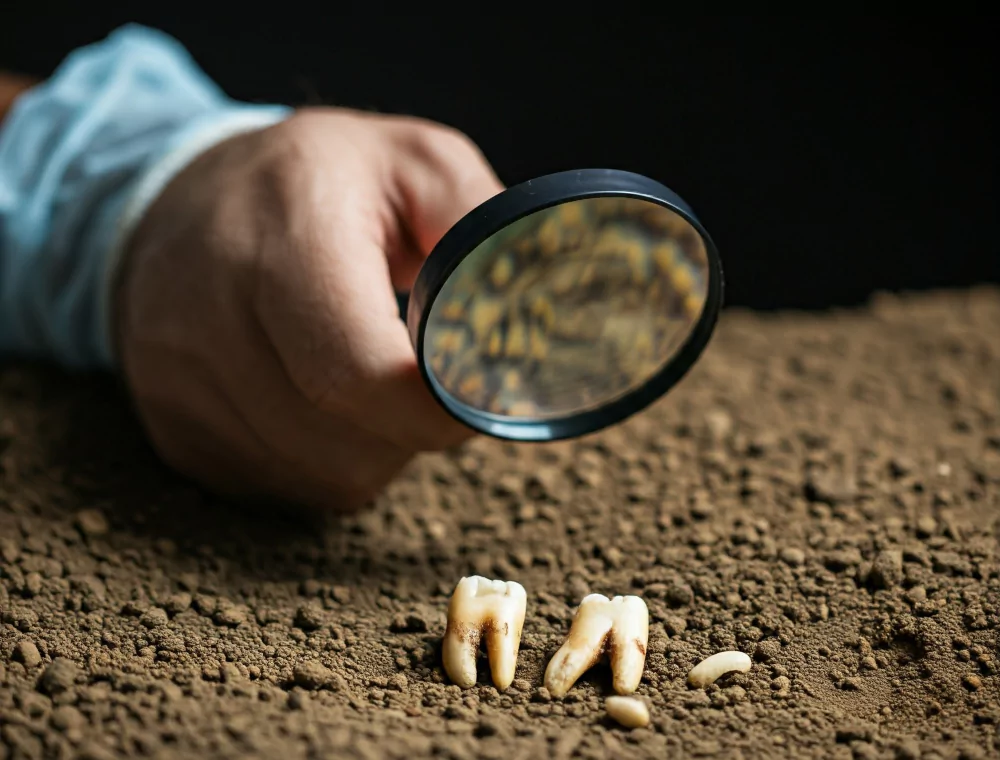
Some of the most significant archaeological discoveries have been made through dental finds. Teeth that have survived the ages remain the only source of information about people who lived long before us.
- Fossils of ancient people
Teeth not only help us understand what ancient humans looked like, but also shed light on their lifestyle. For example, studies of Neanderthal teeth have shown that their diet was varied and included both meat and plant foods. Dental plaque that has been preserved on ancient teeth helps scientists reconstruct their menu and even understand the climatic conditions of the time. - Studying diseases of the past
Thanks to teeth, scientists can learn what diseases were common in the past. For example, tooth decay, traces of infections and gum inflammation on the teeth of ancient people give an insight into the hygiene habits of those times and the development of medical knowledge. - Teeth as a witness of time
Finds of teeth in archaeological excavations make it possible to accurately date the remains, as teeth can be preserved much longer than other parts of the body. Their structure and mineral composition remain virtually unchanged, making them an excellent tool for determining the age and time of burial.
Teeth and death: mystical beliefs

In different cultures, teeth had a special meaning after death. Some ancient peoples believed that teeth had magical properties and could bring good luck or protection in the afterlife. For example:
- The ancient Egyptians believed that teeth left intact after death would help a person in the afterlife. They were considered a symbol of strength and endurance.
- North American Indians used animal teeth in ritual jewelry, believing that they would bring them protection and the power of ancestral spirits.
- Medieval Europe had its own superstitions related to teeth. People often kept their children's milk teeth as talismans, believing it would protect them from illness and misfortune.
Conclusion:
Teeth are more than just a tool for chewing and decorating our smile. They are real timekeepers that can outlive us by hundreds or even thousands of years. They help scientists study ancient civilizations, solve complex crimes and reconstruct the stories of people whose bodies have long since disappeared into time. Teeth play a key role not only in our daily lives, but also in how we leave our mark on history.

Fun facts about teeth
Teeth are not only an important part of our body, but also a real treasure trove of amazing facts that can make us smile and get us interested. Every day we brush our teeth, visit the dentist, chew and smile, but have you ever wondered what lies behind these habitual actions? In this chapter, we have gathered some interesting and even funny facts about teeth that may surprise you and make you look at them from a new perspective.
1. The enamel on our teeth is the hardest substance in our body
Many people will be surprised, but enamel is the strongest and hardest material in the human body. It is even harder than bone! Enamel protects our teeth from damage from chewing and acids, but it remains vulnerable to decay and damage from lack of care. Enamel is made up of minerals, and it is because of its high mineral content that it is able to withstand high levels of stress.
But even though enamel is strong, it does not naturally regenerate. If it is damaged, it needs to be treated by a dentist. This is another reason to take care of your teeth regularly!
2. Each person spends an average of about 38 days of their life brushing their teeth
That may seem like a lot, but think about it: if you brush your teeth twice a day for 2-3 minutes, that adds up to about 24 hours, or a full day, in a year. Multiply that by your average life expectancy, and you get that it takes about 38 days to brush your teeth. But it's worth noting that these wasted minutes and days are not wasted. They avoid dental problems, cavities, bad breath, and other dental diseases, which ultimately keeps us healthy and confident.
So next time you brush your teeth, remember that you are investing this small daily ritual in your future health!
3. There are more bacteria living in a person's mouth than there are people on Earth
Our mouth is a real microcosm populated by billions of bacteria. Scientists say that there are about 700 different types of bacteria in the human mouth, and their total number may exceed the population of the entire planet! Most of these bacteria are harmless and even beneficial to our body, helping to maintain a balance of microflora and protect us from disease.
However, some of these bacteria can be harmful, especially if oral hygiene is neglected. These are the ones that cause tooth decay, inflamed gums, and bad breath. Therefore, regular brushing and flossing can help reduce harmful bacteria and prevent their negative health effects.
4. The first toothpaste was invented over 5000 years ago
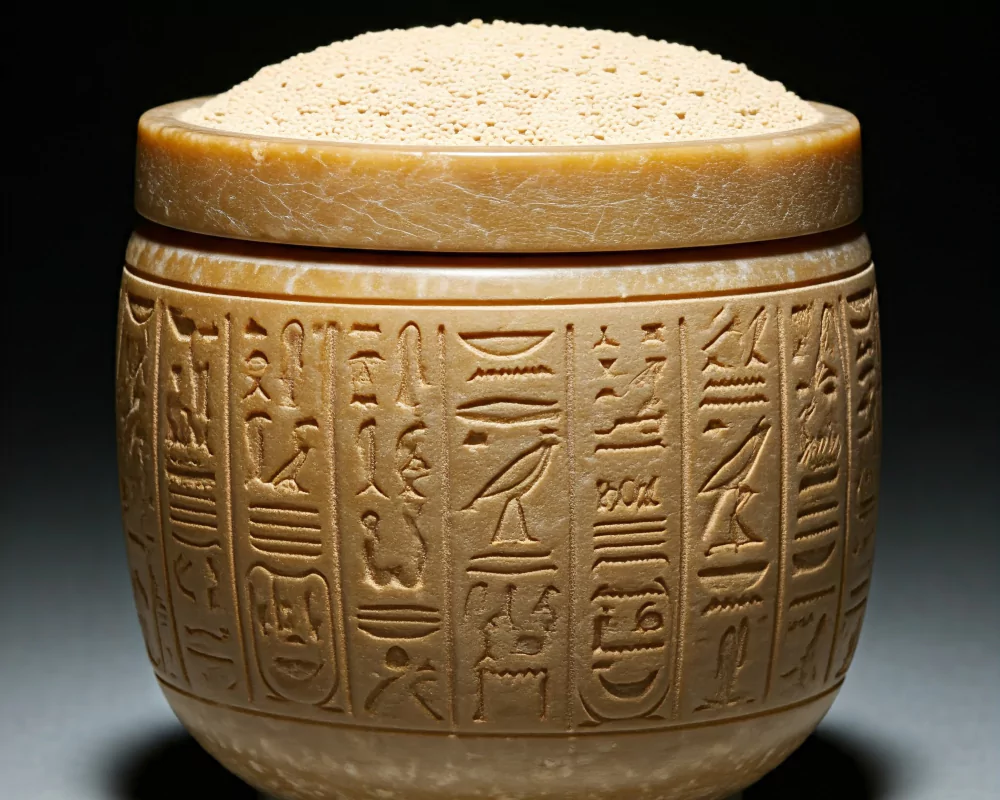
It's hard to believe, but as far back as the ancient Egyptians used a mixture of tooth powder made up of pumice, eggshells, and ashes to clean their teeth. This was one of the first known examples of toothpaste. Later, the Greeks and Romans added ground animal bones, charcoal, and tree bark to their mixtures to make their teeth whiter.
The modern toothpaste that we use today did not appear until the 19th century. Initially, it was sold in jars, but it was not until the beginning of the 20th century that we started to use the usual tubes for toothpaste.
5. Humans have an average of 32 teeth, but not everyone gets one
The average adult has 32 teeth - 16 on the upper jaw and 16 on the lower jaw. But some people don't develop wisdom teeth, which usually appear between the ages of 17 and 25. This is due to evolutionary changes: modern people's jaws are getting smaller, and there is simply not enough room for wisdom teeth.
If you haven't grown wisdom teeth, this is normal and can even be an advantage, as they often cause problems and require removal.
6. Each person has a unique dental imprint
A person's dental imprint is as unique as their fingerprints. No two people have exactly the same teeth. This is why dental data is often used to identify individuals in forensic medicine. The structure of the teeth, the shape and even the presence of fillings can tell us more about a person than we realize.
7. Brushing your teeth before meals is healthier than afterwards
Many people think that brushing your teeth is better after a meal, but in fact dentists recommend doing it before breakfast. The reason is that brushing immediately after a meal (especially after eating acidic foods such as oranges or juices) can damage the enamel, which becomes more vulnerable after contact with acids. Therefore, it is better to brush your teeth before eating and simply rinse your mouth with water afterward.
8. Permanent teeth begin to form before birth
Few people know, but the rudiments of our permanent teeth begin to form while still in the womb, when the person-to-be is only about 6 months pregnant. Permanent teeth begin to grow under the baby teeth and, when the time comes, displace them, creating the foundation for the rest of life.
9. The first toothbrushes were tree branches
Before modern toothbrushes were invented, people used tree branches to brush their teeth. They chewed one end of the twig until it split into fibers and brushed their teeth with those fibers. Such “brushes” were used in different cultures around the world. In parts of Africa and Asia, these methods are still popular today because they have a gentle cleansing effect on the teeth.
10. The Romans used urine to whiten their teeth
In ancient Rome, urine was used as a teeth whitening agent because of the ammonia it contained. It was one of the most bizarre and unpleasant oral care methods. Fortunately, modern dental technology offers us much more pleasant and effective ways to keep our teeth white and healthy!
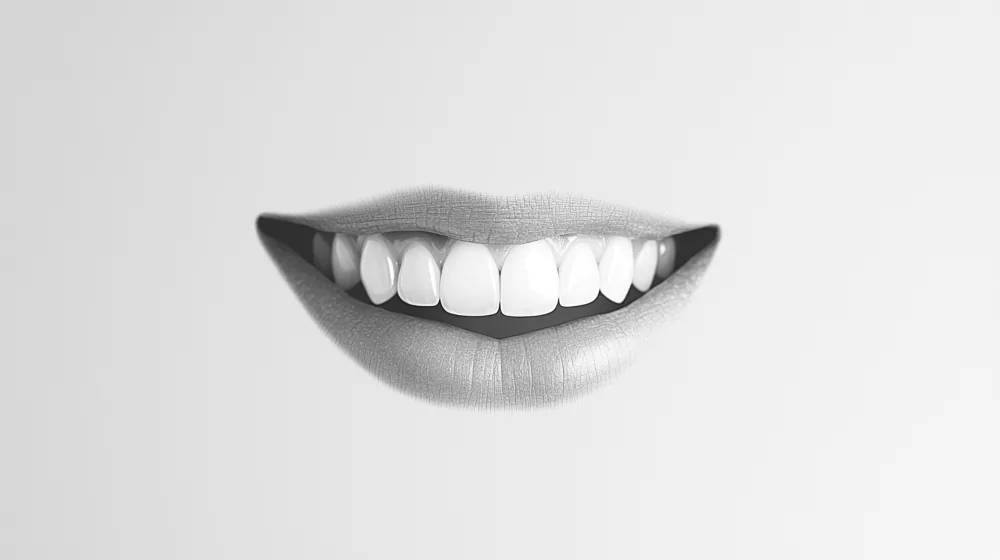
A smile is your greatest asset
Regardless of your age or stage of life, dental health is essential to your overall well-being, self-confidence, and even success in your personal life. Taking care of your teeth is not just a routine procedure, but an opportunity to maintain your beauty and attractiveness for years to come. When we take care of our teeth, we are taking care of our future: both physically and emotionally. After all, a healthy and radiant smile can open doors for you, connect with others, and boost your self-esteem.
Dentistry is not scary, it's necessary. Today, thanks to modern technology and affordable care methods, we can ensure a lifetime of dental health by avoiding painful problems. Dental visits, regular cleanings, and preventive care are key to ensuring that your smile is always your greatest asset.
So smile at yourself in the mirror, remember how important it is to take care of yourself, and don't forget: your health starts with a smile!
Read FOXXY to learn more about how to take care of yourself, stay confident in all situations and always look 100%.
Share:
Latest Articles

Why don’t you still walk every day?
Just 30 minutes of walking a day can reduce the risk of premature death by 20%. It is the easiest, most accessible and safest physical activity for all ages and fitness levels.

9 health benefits of pumpkin seeds that will surprise you
What are the benefits of pumpkin seeds: 1. Protein, 2. Zinc, 3. Sleep, 4. Heart, 5. GI, 6. Diabetes, 7. Prostate, 8. Skin, 9. Oil. Benefits and harms of seeds.

Why hair loss – understand the causes and solutions
Hair loss is a big problem faced by many people, regardless of age or gender. Learn why your hair is falling out: causes of hair loss, effects of stress, diet and hormones. Useful tips and solutions for healthy hair.











